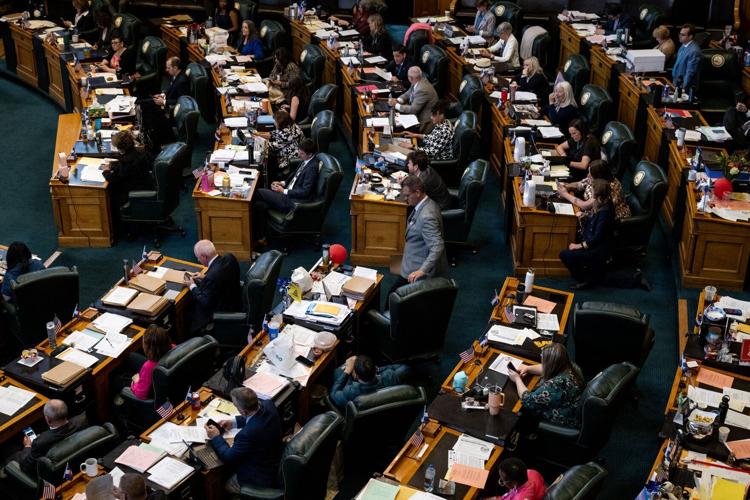Big cuts, bigger questions: Here’s how Colorado lawmakers plan to fill $800 million shortfall
Plans are taking shape on how Colorado’s state government will trim $800 million in spending.
The shortfall, according to Democrats, is due to a $1.2 billion loss of income tax revenue, mainly on the corporate side. The state has enough in surplus to cover about a third of that, but then the question remains as to where to find the rest.
The special session that starts on Thursday, which is expected to last four to six days, includes bills that will tackle as much as $300 million of that shortfall by making changes to corporate taxes in a variety of ways.
The rest is a bit in flux. Some of the shortfall is expected to be covered by the state’s general fund reserve; the rest will be in budget cuts — to be decided by the governor’s office.
Two bills in the special session package deal with the governor’s authority to make spending reductions. While the bills do not aim to change his authority, they require the governor to meet with the Joint Budget Committee to share how he intends to close the budget gap.
Should one of the bills make it to his desk — and the odds are that it will be a measure sponsored by Joint Budget Committee members Sen. Judy Amabile, D-Boulder, and Rep. Emily Sirota, D-Denver — that meeting could take place before Sept. 1.
That’s when budget cuts could be implemented, giving state agencies 10 months to spread out the pain of the spending reductions.
While JBC members have said in the past that any budget cuts would likely be permanent, given that the state is expecting a sizable deficit in the 2026-27 budget, the reductions won’t be finalized until the legislature returns in January. That’s when the JBC reviews supplemental requests for either reductions or funding additions, and at that time could codify the cuts implemented by the governor.
Should the JBC disagree with the governor’s proposal, they could come back with their own ideas on how to solve the budget hole.
So, how will lawmakers tackle the corporate tax changes?
There’s already about a half-dozen bills introduced in preparation for Thursday on that issue.
A measure sponsored by Democratic Reps. Steven Woodrow and Karen McCormick would eliminate vendor fees by January 2026. A Republican version, sponsored by Reps. Dan Woog and Anthony Hartsook, would increase the maximum amount in vendor fees that retailers can retain to cover expenses from $1,000 to $2,000 starting on Jan. 1, 2026.
A measure from Democratic Reps. Javier Mabrey and Andrew Boesenecker, repeals, beginning in 2026, the insurance premium tax rate tax expenditure for home offices or regional home offices.
In another area, current law lists certain foreign jurisdictions in which a C corporation is presumptively incorporated to avoid state corporate income tax and allows a C corporation to rebut that presumption by proving, to the satisfaction of the executive director of the Department of Revenue, that it is incorporated in the listed foreign jurisdiction for reasons that meet the economic substance doctrine described in the federal internal revenue code.
A measure sponsored by Democratic Reps. Yara Zokaie and Bob Marshall permit the executive director to determine, without proof from the C corporation, whether the corporation is incorporated in a foreign jurisdiction.
Meanwhile, a proposal from Sirota would extend the qualified business income deduction allowed under section 199A of the federal “Internal Revenue Code of 1986,” which must be added by certain taxpayers to their federal taxable income to determine state taxable income.
Finally, several measures deal with the expected end of premium tax credits, which have provided subsidies to cover part of the cost of health insurance for low- and middle-income Coloradans.
One measure, sponsored by Democratic Reps. Rebekah Stewart and Sean Camacho, would authorize the Department of the Treasury to issue insurance premium tax credits to insurance companies that are authorized to do business in Colorado and incur premium tax liability, subject to procedures established by the department.






